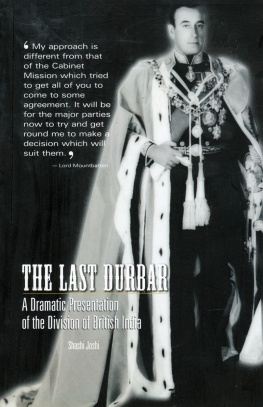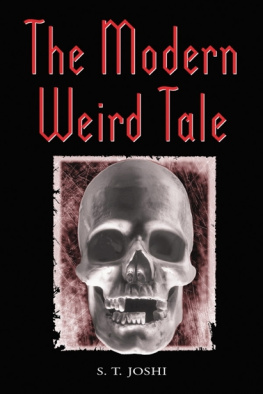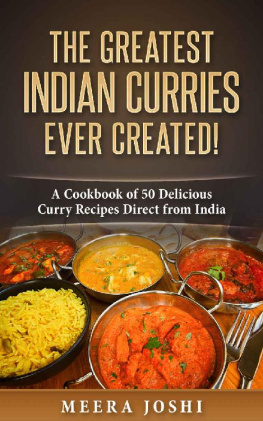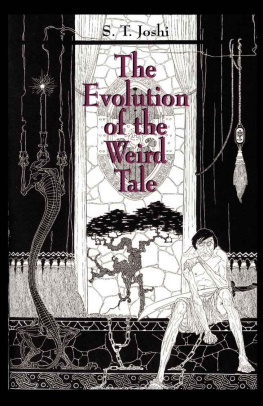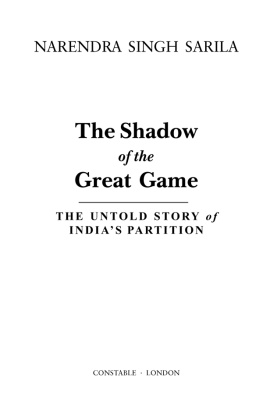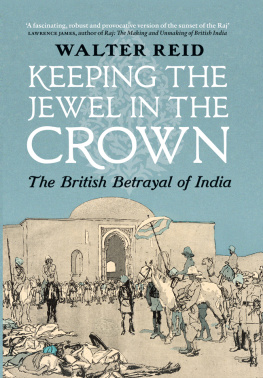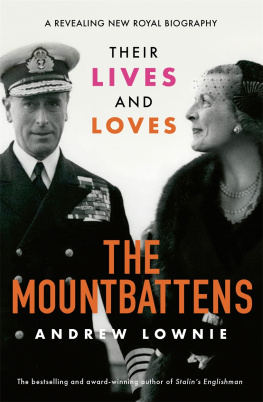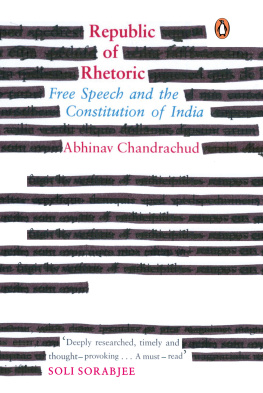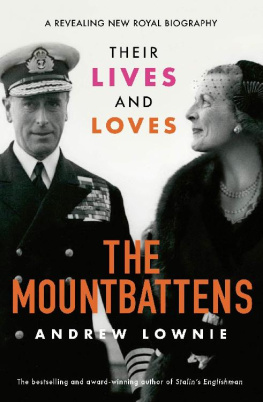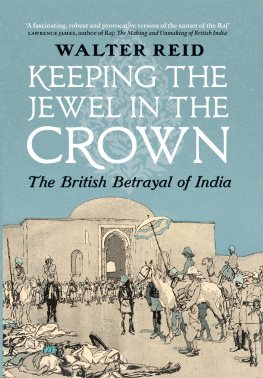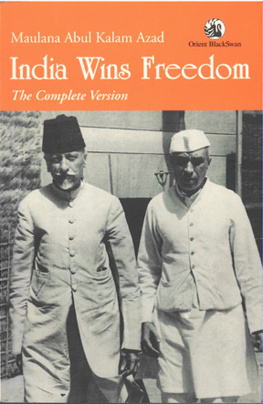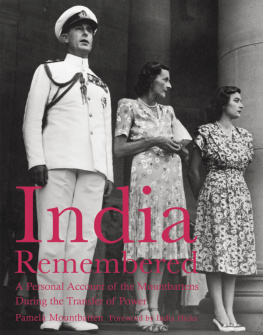THE LAST DURBAR
Shashi Joshi has a Phd in history from Jawaharlal Nehru University, New Delhi. She began her academic career as senior lecturer in history at Miranda House, University of Delhi, was Senior Fellow at the Nehru Memorial Museum and Library, New Delhi, and from 1983-97, was co-director of an Indian Council of Social Science research project. She is currently Senior Fellow at the Institute of Advanced Study, Shimla, India.
The author has several publications to her credit including Struggle of Hegemony in India: The Colonial State, the Left and the Indian Natinal Movement, Volume I, and Struggle for Hegmony in India: Culture, Community and Power, Volume 3.
About the Book
The existing histories of the Partition of British India have very little chance of capturing the moods and mindsets, the helplessness and the frustration of those who steered the course. The histories written thus far have either focused on political narratives or on the ideological analysis.
More recently, the spotlight has turned towards the madness and pathology of hatred and mass murders. The Last Durbar tells it as it was - without the epic quality of conventional writing filled with the rhetoric of freedom and greatness, and without the legalese and constitution-making vocabulary of the Transfer of Power. The personal and political meet and separate at the last durbar, with Louis Mountbatten on the throne, and the modern, constitutional durbars hail the advent of freedom and bid farewell to each other.
The play is based on private papers of Mountbatten, including verbatim records, testimonies, and discussions of the leading political figures. It is a nuanced and multi-layered account of the months and days that eventually led to the independent nations of India and Pakistan.
Drama is the only genre of written history that allows us to fully portray the complexity of such a process and frame the atmosphere to the concentrated moment. The history of Partition has never before been told in this way.
ROLI BOOKS
This digital edition published in 2015
First published in Pakistan, 2006
by Oxford University Press
First published in India in 2007 by
The Lotus Collection
An Imprint of Roli Books Pvt. Ltd
M-75, Greater Kailash- II Market
New Delhi 110 048
Phone: ++91 (011) 40682000
Email: info@rolibooks.com
Website: www.rolibooks.com
Copyright Oxford University Press, 2006
No part of this publication may be reproduced, transmitted, or stored in a retrieval system, in any form or by any means, whether electronic, mechanical, print reproduction, recording or otherwise, without the prior permission of Roli Books. Any unauthorized distribution of this e-book may be considered a direct infringement of copyright and those responsible may be liable in law accordingly.
eISBN: 978-93-5194-080-7
Cover Design: Mukesh Singh
All rights reserved.
This e-book is sold subject to the condition that it shall not, by way of trade or otherwise, be lent, resold, hired out, or otherwise circulated, without the publishers prior consent, in any form or cover other than that in which it is published.
Contents
Preface
Much history writing has emerged from the Partition of the Indian subcontinent. And yet the whys and wherefores of the decisions takenduring the run-up from March 1947 by the leaders involved continue to remain unclear and intriguing. We still ask the most basic questions: how could such wise and clever political leaders not avoid the divisionof the country? How could they not anticipate the holocaust it would unleash? Continued dissatisfaction with the answers provided by scholars only tells us that the narrative mode of history writing cannot refl ect the simultaneity and multiplicity of perpetually shifting positions and accents: the clashing wills and confl icting lines of argument as they are revealed in the minutiae of daily records.
The existing histories of the Partition have very little chance ofcapturing the moods and mindsets, the helplessness and frustrations, the anguish and fi nal despair of those who steered the course. At times they appear to box at shadows, at other times they move slowly towards the apparently inevitable. The histories written in India thus far haveeither focused on political narratives or ideological analysis. More recently, the spotlight has turned upon the blood and gore, the madness and pathology of mass murders and hate. This work tells the story as it waswithout the epic dimensions of conventional writing fi lled withthe rhetoric of freedom and greatness, and also without the legalese and constitution-making vocabulary of the Transfer of Power . It captures the ticking of the clock in real timewith a mix of cynicism, fair play, strategic advantage, pelf and profi t juxtaposed with all too human and frail visions, desires, prejudices and isolations.
Bing Crosby sings as breakfast is eaten; the protocol and ceremony of the Order of the British Empire runs parallel to the columns of refugees; the gracious sophistication of the viceregal public relations machine and the bowing and curtseying at the balls intersect with the exercise of power with a capital P. Bach and Chopin play as the Indian world goes mad.
All this and more comes into play as the endgame reaches its fi nalmoment and denouement. The personal and the political meet and separate as the Last Durbar with Louis Mountbatten on the throne, and the modern, constitutional durbar is to proclaim a republic and bid farewell to each other.
This work, based scrupulously and completely on the private papersof Mountbatten, including verbatim records and testimonies, discussionsand suggestions of the leading Indian actors, is a blow by blow,nuanced and multilayered account of the months and days that led tothe Indian partition. It exposes the palpable relationship of the leadingactors in this drama, the moves and countermoves, the interactions andmanoeuverings between a range of characters against the backdrop ofmomentous events and developments that transfi gure their imaginationfor better or worse. Past policies and platforms mutate rapidly, ofteninto diametrical opposites, and lifelong patterns jerk into newtrajectories. Marginalized and shunned elements, traditionally kept outof the reckoning at Round Tables and parleys at the top, threw most ofthe fi gures that were centre stage into confusion and turmoil. TheJournalist and the Administrator spin order out of chaos with wordsand prescriptions. And yet, the relentless speed of disorder defi es anymiracles. The prosaic and the poetic, the narrow and the expansive, thewise and the foolish, and the hopeful and the bleak are fusedtogether.
It is only the dramatic genre of writing history which allows us to recover the complexity of such a process and frame the atmosphere of that concentrated moment. It also raises interesting issues about writing: the main concerning voice and its textual representation. It also admits more documentary evidence than historical studies usually do. That evidence, here, takes the form of statements from the actors involved in the events who are all extensively quoted: it better inscribes the view of historical discourse. As Certeau remarks: History is never sure: made of two series of data, namely of ideas we have about the past on the one hand, (and) of documents and archives on the other, the history book is a book divided.
Acknowledgements
Without the Fellowship and support given to me by the Hartley Institute Library, Southampton University, and its then Director, Dr Woolgar from May to July 1998, I would not have had the opportunity to research the Mountbatten Papers housed there. I place on record my gratitude both to Dr Woolgar and the Hartley Institute Library.

